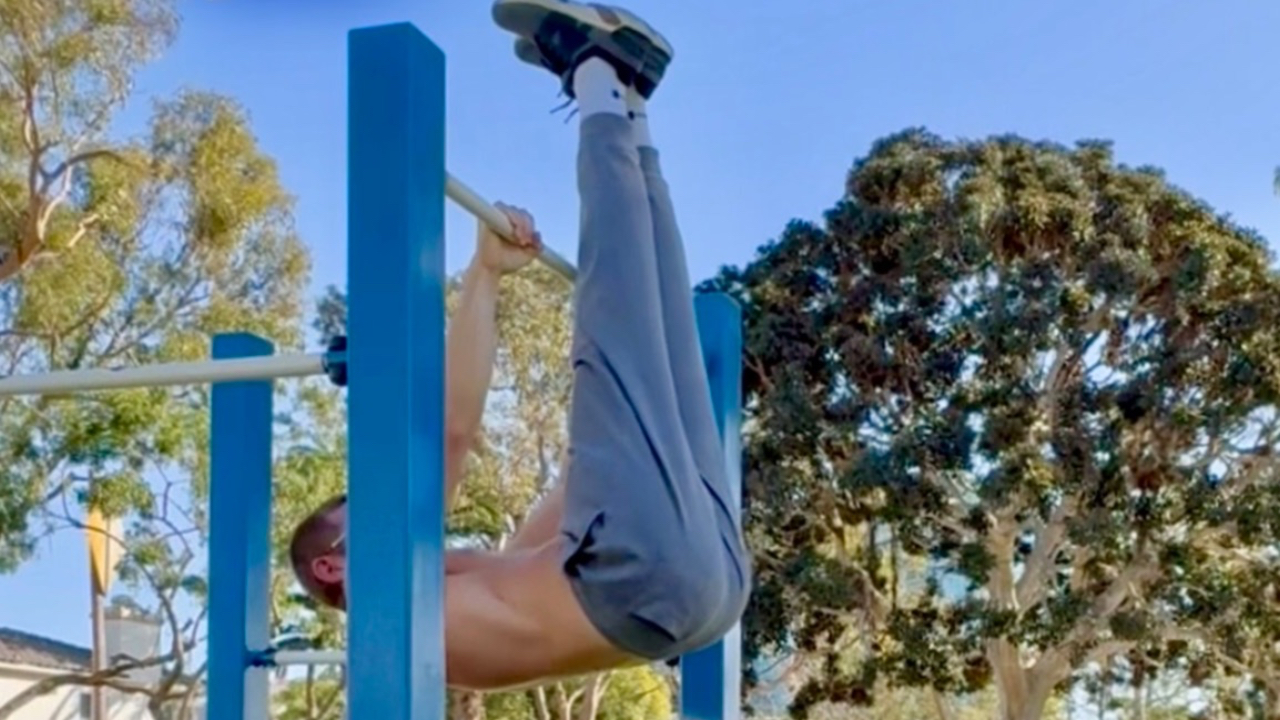How to Train Your Upper Body the Right Way With Calisthenics

How to Train Your Upper Body the Right Way With Calisthenics
If you want real upper body strength, clean muscle lines, and joints that stay healthy for years, there is one rule you must follow.
You need to train every push and pull angle.
Not sometimes. Not eventually. Every single week.
A complete calisthenics workout hits vertical and horizontal movements for both push and pull.
This is how you build a balanced muscle chain that performs well in real life, not only in the gym.
When training ignores angles, the body adapts poorly.
Strength becomes limited, posture suffers, and injuries show up.
When angles are trained consistently, the body becomes strong, coordinated, and ready for any movement at any time.
Why Angles Matter in Calisthenics
Your upper body is designed to push and pull in multiple directions. Training only one direction leaves gaps. Those gaps turn into weaknesses.
Vertical pulling builds strength for pull ups, muscle ups, and climbing patterns.
Horizo...
3 Calisthenics Exercises That Break Plateaus for Beginners
3 Calisthenics Exercises That Break Plateaus for Beginners
You know the feeling.
You show up.
You train consistently.
You hit your pull ups, your push ups, your basics.
And then…
The reps stop increasing. Your body feels strong but progress feels frozen.
You are not failing. You are not doing it wrong.
You have simply reached the point where beginner volume stops working on its own.
If you have been training calisthenics for over a year and can perform around eight clean pull ups, congratulations.
You built a solid base.
Now it is definitely time to train smarter.
Breaking a plateau is not about doing more random workouts or chasing exhaustion.
It is about choosing the right calisthenics exercises that address real strength gaps and upgrade how your body produces force.
These three movements do exactly that.
Why Plateaus Happen in Calisthenics
How to Make Fast Progress in Calisthenics as a Beginner

How to Make Fast Progress in Calisthenics as a Beginner
Starting calisthenics can feel overwhelming.
There are thousands of exercises, programs, opinions, and flashy skills all over social media.
The good news is this. Making fast progress as a beginner does not require complicated routines or extreme training.
It requires structure, consistency, and respect for how the human body actually adapts.
If you follow the principles below, you build strength, coordination, and confidence faster while reducing injury risk.
This approach works whether your goal is getting your first pull up, transforming your physique, or building a sustainable calisthenics workout routine you can stick to long term.
Train Full Body Workouts
As a beginner, full body training is the smartest path forward.
Forget bro splits and muscle isolation routines.
Your body thrives on coordinated movement patterns, not isolated muscles trained once per week. Full body calisthenics workouts allow you to train ...
How I Lost 5+ Pounds Eating Croissants and Baguettes Every Day in Paris
How I Lost 5+ Pounds Eating Croissants and Baguettes Every Day in Paris
Yes, you read that right.
I spent the holidays in Paris eating croissants and baguettes every single morning.
I enjoyed raclette, pastries, crepes, wine, hot chocolate, and two full Christmas dinners plus two New Year’s lunches.
And I still came home more than five pounds lighter.
No crash diet. No miracle supplement. No extreme workout plan.
What happened was simple. I followed a lifestyle that supports fat loss naturally.
The same principles I teach through calisthenics and movement based training applied perfectly in real life.
This is proof that getting lean does not require suffering. It requires structure, movement, and smart habits.
Here is exactly how it worked.
Walk Everywhere and Let Your Body Do Its Job
The first rule is movement before meals. Every croissant and baguette required a walk to the local boulangerie.
That meant going down the stairs, walking through the neighborhood, then com...
The Real Reason Running Hurts Your Knees and the Simple Fix
The Real Reason Running Hurts Your Knees and the Simple Fix
Running is one of the most natural human skills and 100% part of any training routine. It is also one of the most commonly misunderstood.
Many runners unknowingly land hard on their heels, thinking it is normal or harmless.
It is not.
Heel striking creates unnecessary impact, disrupts forward momentum, and places stress on the knees that adds up fast. If you care about long term joint health, athletic performance, and sustainable fitness, it is definitely time to upgrade how you run.
When the heel hits the ground first, the body absorbs force poorly.
The impact travels straight up the leg and loads the knee before the rest of the system can help.
This pattern consistently leads to knee pain and common issues involving the patellar tendon, ACL, MCL, meniscus, and surrounding structures.
Pain shows up because the movement pattern is inefficient for how the foot and leg are designed to work together.
The human body i...
Is Two Workouts a Week Really Enough for Real Results?

Is Two Workouts a Week Really Enough for Real Results?
Let’s be honest.
If your goal is to build a strong, lean, athletic body with calisthenics, two workouts a week usually do not cut it.
Yes, you may hear influencers and coaches say that two sessions are enough to build muscle, but that advice only applies to very specific situations.
If you are serious about strength, muscle, endurance, and skill, it is definitely time to get started with a training schedule that matches your ambition.
When Two Workouts a Week Can Work
There are two scenarios where training twice per week can make sense.
The first is when you are a complete beginner.
If you have never trained before or you are carrying extra body fat, even a small amount of training creates progress.
At this stage, your body responds fast because everything is new.
Two basic calisthenics workout sessions per week can help you learn movement patterns, build coordination, and develop consistency.
The second case is the ...
The Master's Checklist: How to Build Your Best Calisthenics Body

The Master's Checklist: How to Build Your Best Calisthenics Body
You see those videos, the guys who look like Greek statues performing impossible feats of agility and strength?
They didn't get there by just doing a couple of sets of push-ups.
They follow a comprehensive blueprint.
Most people focus only on the flashiest moves but the true master, the complete calisthenics athlete—trains the gaps.
We don't just chase PRs and flashy moves, we hunt for imbalances and realign them.
I've broken down the Master's Checklist, the non-negotiable things you need to hit to build a body that is strong, resilient, and truly functional.
This is your training mandate.
Phase 1: Upper Body Mastery (The Foundation of Feats)
If you want to own the bar, you have to dominate both the Push and the Pull with equal intensity. Notice we don't just list the big moves; we list the Joint Protectors too.
PULL (The Engine for Back and Biceps)
-
Pull-Ups: Your vertical strength benchmark. Go for st
...
Think You’re "Too Heavy" for Calisthenics? Think Again.

Think You’re "Too Heavy" for Calisthenics? Think Again.
Let’s be real: the treadmill is a nightmare, and the weight room can feel intimidating.
You might also see athletes defying gravity on a pull-up bar and immediately think, "Nope. I am way too heavy to start that."
Here is the truth: You don't need to be light to start calisthenics; you start calisthenics to get light.
Using your own body weight is one of the safest, most rewarding ways to torch fat and build real-world strength, regardless of what the scale says today.
It’s time to stop looking at your weight as an obstacle and start using it as your resistance.
Your 5-Step Roadmap to Bodyweight Mastery
We are ditching the excuses and giving you a concrete plan.
Here is exactly how we go from "heavy" to "hero":
-
The "Zero-Shame" Start: How to use regressions (easier variations) to train safely without destroying your joints.
-
The 20-Pound Blueprint: The killer combo of nutrition and bodyweight volume that melt
...
Calisthenics for Fat Loss: The Ultimate Bodyweight Cardio & Circuit Plan

Calisthenics for Fat Loss: The Ultimate Bodyweight Cardio & Circuit Plan
Calisthenics is one of the most effective tools for fat loss and achieving a "shredded" look.
This is because bodyweight training naturally combines strength work (preserving muscle) with high intensity (burning calories and boosting metabolism).
To maximize fat loss, you must move away from traditional sets/reps and embrace High-Intensity Interval Training (HIIT) and Density Training.
1. The Core Principle: Metabolic Burn
For fat loss, the goal is to maximize your Total Daily Energy Expenditure (TDEE).
Calisthenics HIIT achieves this through the EPOC effect (Excess Post-exercise Oxygen Consumption), keeping your metabolism elevated long after your workout is finished.
| Training Goal | Primary Mechanism | Calisthenics Method |
| Fat Loss | Calorie Deficit + High EPOC | Circuit Training & HIIT |
| Muscle Preservation | Maintain Strength Stimulus | Compound Bodyweight Movements |
2. The 20-30 Mi...
The Calisthenics Secret: How Bodyweight Training Targets Overall Body Fat (Not Just Belly Fat)
The Calisthenics Secret: How Bodyweight Training Targets Overall Body Fat (Not Just Belly Fat)
If your goal is to lose belly fat, you need to understand one crucial truth: spot reduction is a myth.
You cannot target fat loss in a specific area, like your abdomen, through isolated exercises.
Successful, long-term fat loss is achieved by reducing overall body fat, and bodyweight training (calisthenics) is an exceptionally effective tool to accomplish this.
Here is the science-backed, three-pillar strategy to lose body fat using just your body weight, boosting your metabolism and fitness from the inside out.
1. Master the Calorie Deficit (The Foundation)
Fat loss begins and ends with thermodynamics: you must consume fewer calories than your body burns daily [Nutrition & Metabolism, 2017]. This is known as a calorie deficit.
-
Calculate Your Needs: Start by determining your Basal Metabolic Rate (BMR), the minimum calories your body needs to function at rest. Then, adjust this
...

